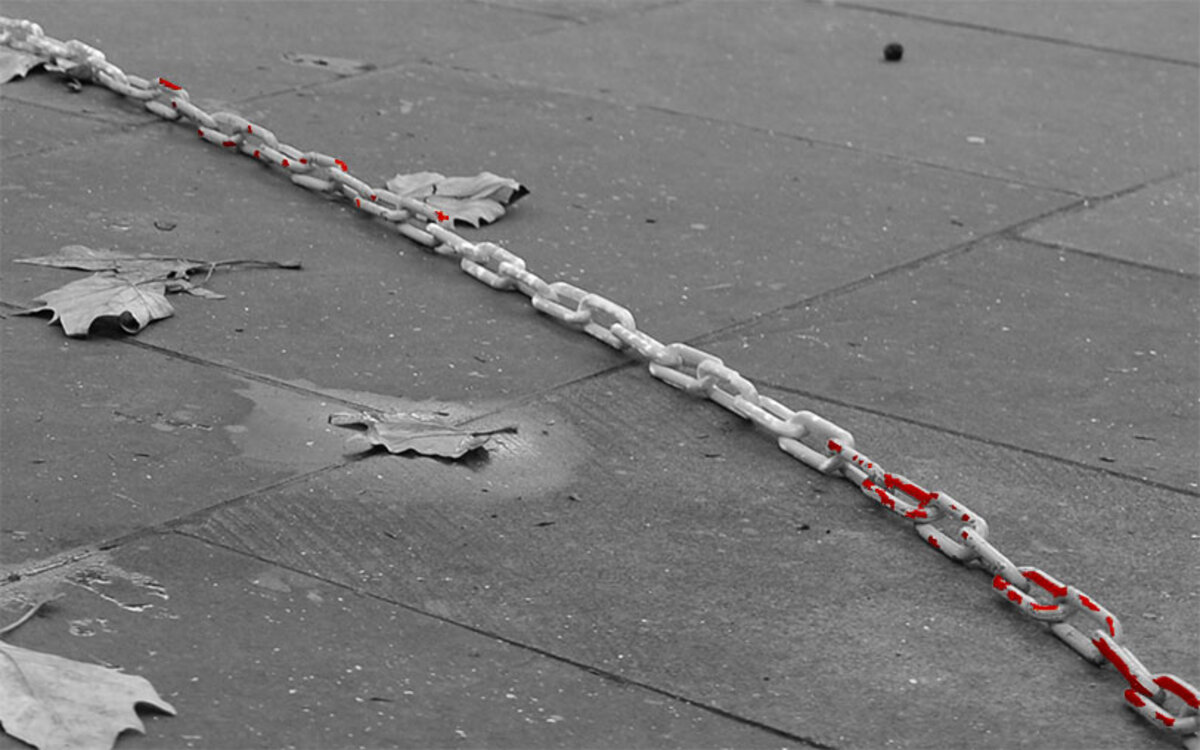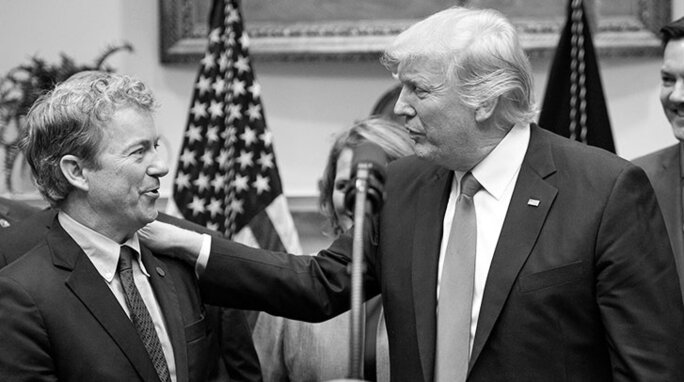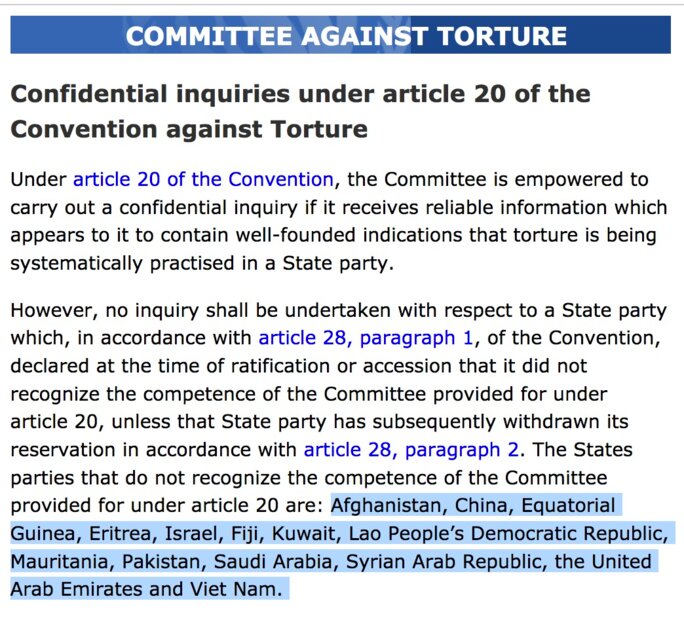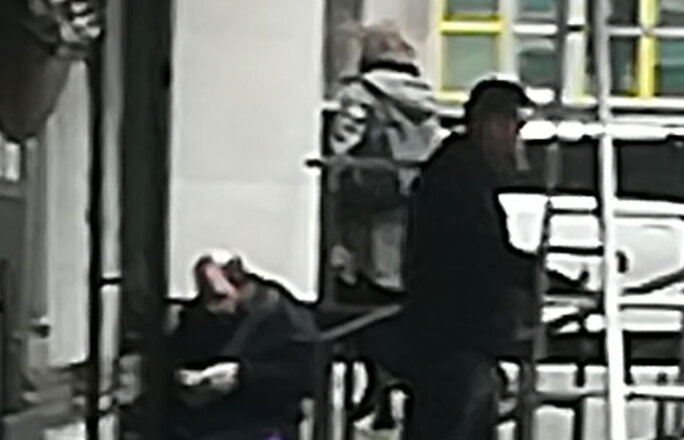October 21 : Julian Assange physically appears in Westminster Court. He can still express himself.
November 18 : Julian Assange appears on video screen, says his name with difficulty.
December 13 : Julian Assange appears on video screen, unable to say his name and date of birth. He ends up painfully confirming that the judge pronounced the right name.
December 19 : Julian Assange appears on video screen, struggling to concentrate, he never manages to stay focused for more than one or two minutes.
The process of torture inflicted on Julian Assange in the land of the "Rule of Law" enters its final phase. His appearances at the Court of justice have nothing to do with Justice, rather a theatrical scene where the punishment of a recalcitrant citizen is exposed for all to see. "Look what awaits you if you do not comply with the order" is the message seemingly sent to us by world leaders. Denial of basic rights, humiliation, incarceration, torture, this is the fate promised to people who disturb those.

Agrandissement : Illustration 1

Gareth Peirce's blinkers
In front of Judge Vanessa Baraitser on December 13, lawyer Gareth Peirce complains she has been unable to meet Julian Assange. This means she just discovers that day the psychic and physical state of her client: unable to talk, badly attired, virtually absent, huddled up as if he were cold. Do you think she would cry out against this unacceptable facts? Not in the slightest. She doesn't try to establish contact with him, as in previous sessions she acts as if he does not exist. The important thing for her now is to see behind closed doors a man neutralized by his captors. We imagine the scene:
- « Hi Julian, how are you doing? »
- « … »
- « Okay, I'll tell you the strategy. You go ahead and we take care of the rest. How's that? »
- « … ».
- « Are you sure? »
- « I... »
- « ??? »
- «...am Aus... Australian »
- « Great. Let's do like that, then. »
Let's be serious: the current lawyers have had eight months to create the conditions for fair justice, they've totally screwed up. Therefore the first urgent demand is to adjourn the trial until Julian Assange is able to defend himself; to get outraged before the judges, to question the citizens, to stop the masquerade. Get Julian Assange out of this crushing machine before it is too late. No need to ask his opinion to act and save him.
The strategy of "discretion"
During a debate in Paris, in response to criticisms against legal team way of doing, a high-ranking woman in international bodies, who seemed to know the lawyer, countered the argument, being in favour of Gareth Peirce "strategy of discretion". As a matter of fact, it is natural that a number of reasonable people might have supported this option. Provided one accepts that Assange's defence takes place without interaction with the citizens involved, without denunciation of the media lies, letting happen behind-the-scenes negotiations between the defence team and the British and US authorities, from which Julian Assange is de facto excluded.
Our conviction, already stated in this edition, is that this strategy is doomed to failure and does not respect Julian Assange: from the point of view of effectiveness and ethics, we strongly condemn it. It is politically undermined by the gigantic conflicts of interest affecting Assange's lawyers, and although Gareth Peirce is apparently not in direct conflict, her acceptance to do the job ends up sharing her colleagues’ contradictions. On November 6, she met in the United States senator Rand Paul, a libertarian from the Tea Party, just before or after his successful blocking of "a resolution reaffirming the Senate's support for whistle-blowers protection". Read our analysis at the end of the article.

Agrandissement : Illustration 2

As far as Julian Assange is concerned, things are taking a new turn. The deterioration of his state of health is obvious and rapid to the point that one person thought he had bandages on his wrists, as if he attempted suicide; an error firmly corrected by witnesses present on December 18, he just had a thin bracelet on his left wrist, probably made of plastic; one can appear weakened and remain combative inside. Nevertheless, concerns for his life or mental health are legitimate and blatant. Well, close to. Gareth Peirce remains imperturbable, she shows no emotion, no interest in her client's declining health, she asks nothing from justice as a result. She would not act differently defending a mummified icon. She does nothing to protect him, to sound the alarm. Her inaction is such that if Julian Assange died in prison, or came out of it with mental scars, the question of her responsibility would be acutely raised.
Monika Karbowska's transcript of December 13 hearing starts quoting the judge Vanessa Baraitser: « "Mr. Assange, you will appear on video on December 19. Unless Ms Peirce wants to make a request for a physical appearance?" She answers No, she does not! Even though it is the only way to have access to her client, giving her the right to work with him 1 hour before and 2 hours after the hearing in the famous consultation rooms of the court! The judge moves the lawyer to what she requests but she dismisses her outstretched hand! Attendants reaction is incomprehension, confusion and outrage ».
For someone who is in ill-state and in long-way drastic isolation, half a day in court is a breath of fresh air, an opportunity to feel support from the attendance, or to express himself, if he manages to draw energy. It allows observers to report on his condition. It meets Gareth Peirce's need to see his client. And she's opposed to it.
Perhaps do the supporters begin to wonder about strategy of discretion relevance.
What happened to the safeguards?
We're talking about an innocent citizen treated on European soil like in the darkest era of the Great Inquisition. Few people care, indifference is the rule. What can be done to counter this terrifying prospect? The citizens are then turning their eyes towards the international regulatory authorities.
The NGOs are part of them, and for this reason they are financed by governments and donators. Focused on political persecution, Amnesty International is on the front lines; Western pressure could have forced it to defend Julian Assange softly. If shy support means throwing its full weight to crush the defenceless Julian Assange, well yes, this is what Amnesty International did. From NGOs to GOs, there is one "Non" that AI leaders have failed to return to US wishes, noticeably.
Because of the direct involvement of Sweden and Great Britain, the European Parliament has a duty to react. A few MEPs, including the Irish Clare Daly, tried to move the lines, notably through a conference entitled "Julian Assange, Extreme Cruelty and Injustice". This is a start, but outraged MEPs keep lonesome. None of the 750 MPs responded to the mass mailing of the WJJA's request for release; let us recall that they are handsomely paid out of our own pockets to fight for our rights.
The International Criminal Court and the European Court of Human Rights are possible recourses. The complexity of the procedures, and the difficulty to obtain the support of lawyers devoted to the democratic cause, have not allowed to trigger them up, for the moment.
What about United Nations? With the Ruling of 2016, the organisation has described the confinement of Julian Assange in the embassy as "arbitrary detention" and demanded his freedom of movement. Without success, nor active follow-up by member states. On May 31, UN Rapporteur on Torture Nils Melzer diagnosed "psychological torture". In November, Nils Melzer reiterated his diagnosis and urged the authorities to release Assange. Nothing happened; the next logical step, in line with the prerogatives of the UN, is to launch an investigation. How is Julian Assange being tortured, since when, where and by whom precisely?
In its last request the WJJA asks UN to open such investigation. The UN answered that this request is not receivable "the United Kingdom does not recognize the competence of the Committee Against Torture". There are two distinct things: from one side voluntary countries ratify the UN Treaty on Torture, on the other side they do not necessarily recognize the competence of the Committee. In this case, article 20 is clear, the UN cannot carry out an investigation, that's how it is (*). What is less clear is whether the United Kingdom, which has ratified the treaty, would not have recognized the competence of the Committee. Such countries are listed unambiguously, and the United Kingdom is not included in the United Nations notification. In the eyes of the public, the United Kingdom recognises the Committee Against Torture, the UN response received this week is incorrect, and the necessary investigation is still possible under the regulations.
Unless the list is out of date, which would be a serious matter. The UN belongs to citizens around the world, they must know which countries are committed against torture enough to expose themselves to an investigation on their own soil.
Since the UN is one of our last recourse, needless to say that the citizens will ask for greater transparency from their own organization, as well as a duly referenced answer.

Agrandissement : Illustration 3

Other prerogatives exist, often relying upon the initiative of UN member countries. And inevitably, hillbillies make the count of the governments unaffiliated to the United States. In South America, since the coup d'état in Bolivia, only Nicaragua, Venezuela and Cuba are working towards political and economic independency. In the East, Big Bad Putin is doing the same in his country, not without triggering a few counter-deals, Magnitsky Act is one of them.
Our readers know we are not manicheans. When Russia's Foreign Affairs spokesperson, Maria Sacharowa, speaks out on the Assange situation, it calls out to us. She said on RT Deutsch: "Julian Assange's situation is clearly a violation of the laws, regulations and standards that govern and guarantee media freedom and the safety of journalists among the Western world and in particular the United Kingdom, which claim to be a model of democratic standards. It is an example of what double standards look like in real life - rather unattractive. States that give lessons to others and urge them to respect human rights and freedom of expression completely ignore the "values" they declare when it comes to their own interests".
Without neglecting the relativistic nature of any diplomatic declaration, nor portend Russia's democratic exemplary nature, this synthetic vision of the Western situation subtly suits, in our view, the reality on the ground. As for the displaced moral lessons, Maria Sacharowa is undoubtedly expressing a broadening pissed-off feeling.
Russia or Dream-Land is not the issue, the matter is how to build together and not childishly against each other, a long-living humanity.
In the meantime, our hopes are pinned on the United Nations, this fragile structure built by our mothers and fathers, minded by wise resolutions following a disaster that no one would like to see happen again.
(*): For a global vision, read the Convention against Torture and Other Cruel Treatment ... The content of the Convention seems to offer alternative possibilities for intervention. We will come back to that.
Method / Gareth Peirce / 911 / Alan Dershowitz
While we are fighting for the restoration of a certain justice, we actors of this edition and beyond, are not unaware that the role freely assigned by ourselves goes beyond the very idea we had envisioned. Looking for meaningful details, cum grano salis, denouncing, tracking down disturbing clues, linking up, elaborating hypotheses, flirting with the unspeakable, discerning motives, in short, investigating with a cool head as far as possible, what we find despite our willingness make us play unwanted roles; acting like cops sometimes, but also as communicators, activists, simple witnesses, field workers, or even improvised law scrutineers.
The progressive fall-down of all democratic institutions pushes us to play these roles, which sometimes bring insults and accusations. “Conspiracy tellers” is one of them, recently received from a well-known French person whose name we do not mention for fear of harming him. Anti-conspiracy finger-pointing is an invention of the CIA, dixit director Allan Dulles himself in the 60s. This is for us a ban on thinking, a ban on putting things together, a summons to reside in one's little square, a brake on the systemic study of facts. For sure, ultra-imaginative, reductionists pseudo-scientists, sometimes themselves hidden anti-conspiracy propagandists, do exist. Who cares. A minimum of method, sincerity, transparency, hard work, the need to stop the destructive dynamics, this is what makes our "conspiracy theories".
Gareth Peirce
So here we are. How could a woman so highly regarded as Gareth Peirce provide such a defence? Sorry, but we have to answer this low profile conspiracy-like question.

Agrandissement : Illustration 4

She defines herself in one essay as “a lawyer who represents individuals who are or have been the subject of rendition and torture, held in prisons in the UK on the basis of secret evidence, or interned in secret prisons abroad under regimes that continue to practise torture. She has represented many men and women from communities wrongly deemed ‘suspect’, on cases such as those of the Guildford Four, the Birmingham Six, Judith Ward, Jean Charles de Menezes and Moazzam Begg“.
The “communities wrongly deemed 'suspect' “ are here mainly Muslim and Irish Catholic. Concerning Ireland, Gareth Peirce says she has defended "IRA suspects", which can be confusing: these people, wrongly accused (*) in the 1970s of planting bombs for the IRA, have always denied being IRA soldiers. Gareth Peirce never defended IRA members, nor did she support the cause of the IRA as such.
The IRA leadership has strongly denied instigating the Birmingham bombings, which did not comply with the "official IRA code of conduct". No more than six days after these attacks, the repressive toughening of the "Prevention of Terrorism Act 1974" was passed. Knowing who or what organization instigated these attacks is a major political issue. Gareth Peirce has not, to our knowledge, addressed the question publicly.
In her 2010 essay, Dispatches from the Dark Side - On Torture and the Death of Justice, Gareth Peirce attacks the process of judicial and incarceration harassment that has taken place in the first decade of the 21st century in the UK.
In her interesting post-9/11 historico-judicial review, one gap stands out: the legal reintroduction of torture into US practice is barely sketched out. Yet this is the starting point of the British complicity that she denounces. She writes: “As early as the summer of 2002, the White House lawyers drew up a list of techniques which, according to them, did not constitute torture within the meaning of the Federal Torture Act...“; she lists the torments to be inflicted in Guantanamo and elsewhere, "forced standing", the "frog crouch", the "extreme noise"... But Gareth Peirce does not describe how the United States exempts itself from international laws. Gareth Peirce's analysis is a mix of lucid well informed elements with disturbingly imprecise ones (**).
Since the “death of justice“ is not a slow, quiet river flow, let's try to figure it out by ourselves.
During Bush Jr. presidency, a body called the Office of Legal Counsel (OLC) has taken on particular importance. It is composed of about thirty attorney-advisers, headed by the Attorney General appointed by the President. The OLC drafts "memos" guide the application of the law in the Courts of Justice. These memos tend to remain secret, but they are largely prescriptive, such as the torture memos that conceptualized the “enhanced interrogation techniques“. It is through this mechanism that the CIA tortures without penal risk, without any change in the law itself. The Torture Act mentioned by Gareth Peirce, which defines and prohibits torture, is still active and allows the United States to avoid appearing to violate international law, on paper.

Agrandissement : Illustration 5

The OLC is not impervious to lobbying, and people like Alan Dershowitz helped shape the Torture memos. This lawyer, introduced by Geoffrey Robertson in Assange's defence, was a proponent of a straightforward solution, advocating the legalization of torture to better frame it. The solution adopted is more presentable; in 2005, Attorney General Alberto Gonzales wrote: “The Eighth Amendment [prohibition on cruel and unusual punishments] has long been held by the Supreme Court to apply solely to punishment imposed in the criminal justice system.“ In other words, you just have to play with situations that are interpreted (with the advice of OLC eventually) as being outside the US judicial system (a foreigner tortured outside the US, for example), and the sleight of hand works: torture is carried out with total impunity by US officials.
Torture practices were reactivated in the context of the "War on Terror", then in the wars in Afghanistan and Iraq, and while the "legal" framework is still in place, there is no reason to believe it has stopped. This framework is the necessary basis for renditions that are no longer extraordinary, but which present different configurations. When a rendition is wanted by American officials, it consists in finding accomplices and suitable places outside American territory, which allows discreet and free of risk torture. Our previous paper examines possible Julian Assange rendition cases.
In the International Laws scope, one can observe other types of the judiciary processes circumvention, for which the Patriot Act and the Magnitsky Act are primary tools; the European arrest warrant is itself instrumentalized to an extent that needs to be assessed. Justice is not dead; it is short-circuited, slowed down, globalised and unbalanced.
The 9/11 Scoop
On June 6, 2006, Ed Haas of the Muckraker Report contacted an FBI official, Rex Tomb. The journalist was surprised that Bin Laden would not be included in their Most Wanted page; Rex Tomb replied that “FBI has no hard evidence connecting Bin Laden to 9/11 “. This is not a brand new information, the FBI report had already more or less leaked, but Rex Tomb's clear answer seriously undermines the official version. The 2015 unclassified FBI report, “Protecting the Homeland in the 21st Century“, does not contradict Rex Tomb: it states that “the additional evidence uncovered since the 9/11 Commission report strengthens the cases against already identified co-conspirators “. Bin Laden is not quoted, and he is more instigator than “co-conspirator“; and if the FBI did not “already“ have solid evidence at the time, it has no more evidence in 2015.
The scoop was offered to us with insistence by Gareth Peirce in 2009: “The question of who was responsible for 9/11 could be answered without hesitation“, then she quotes two agents of the British services, “OBL [Osama bin Laden] and his people were the only ones with the capacity to do it “ and she cites finally ex-CIA agent Michael Scheuer, who “points out that bin Laden’s reasons for the 9/11 attack were clearly set out within days“.

One thing is certain, she does not cite the agency that has authority on American soil: the FBI. Gareth Peirce just kindly serves us the official version of the power in place, which brings her a little closer to Alan Dershowitz, the undisputed guardian of this 911 version. He himself claims to know closely two or three members from the 9/11 Commission that concluded to bin Laden guiltiness (out of eleven commission members). Alan Dershowitz disseminated these allegations in public lectures, for example at the University of Pennsylvania in 2007, shortly after Rex Tomb's statements.
Gareth Peirce has worked in USA, she keeps tight links with USA, hence unlike the average European people, she cannot ignore the huge controversies still existing concerning the whole 911 events. Her 2009 one-way statements concerning Bin Laden cannot be fortuitous. She blocks a major path towards the search for a truth directly linked to the spread of torture; in terms of ethics, this is clearly hurting the core of thinking of Julian Assange. As a lawyer, she knows the weight of evidence. Yet she is coming to terms with the lack of evidence as to Bin Laden's guilt; in political terms, this is deeply disturbing.
Gareth Peirce denounces torture in books, she defends post-torture cases but we do not know precisely how, and when she defends a man who is being tortured (the qualifier "psychological" is not necessary according to the UN definition of torture; one is tortured or one is not tortured), she does not even denounce torture process in front of Julian Assange’s judge, worse, by not refusing to participate in the masquerade, she gives substance to a legal procedure which has all but the characteristics of legal one.
It is thus no longer surprising to find in the same waters where Julian Assange is worriedly bathing, Geoffrey Robertson of Doughty Street Chambers, his neo-con companion Alan Dershowitz, Gareth Peirce of Birnberg Peirce & Partners, Mark Summers of Matrix Chambers pleading for&against US extradition cases…
(*): The British justice cleared and released the Birmingham Six in 1991, the Guildford four in 1989. Many grey areas remain, still.
(**): Dispatches from the dark side, edited by Verso / New Left Books (based in London and New York), is a gathering of texts written by Gareth Peirce from 2008 to 2010. Here are few complementary comments.
- In the first chapter, Gareth Peirce introduces torture basics:
“Today the interrogation style of the Israeli GSS —called ‘shabeh’ by its victims—continues to draw on the same techniques and on those used by the British in Northern Ireland. They include sleep privation,
positional tortures, exhaustion exercises, exposure to extremes of temperature, the use of noise, and ‘chair’ torture“
While she does not give the official definition of torture from the UN, she cites instead long comments from former UN torture Rapporteur Nigel Rodley, in an unknown context: “Each of these measures on its own may not provoke severe pain or suffering […] they are sometimes apparently applied for days or even weeks on end. Under those circumstances, they can only be described as torture.“
This is rather misleading because the UN referential definition does not condition torture to any duration, nor combination of “measures“; it is much more strict. Gareth Peirce opens the door to torture acceptance weighting.
Few pages further, Gareth Peirce mentions former head of MI6, Richard Dearlove, who preconized the “use intelligence obtained through torture by foreign intelligence services “, she then mentions a “memo from a Foreign Office legal adviser in March 2003“, in agreement with MI6 view, and she comments :
“How sound was this advice legally? Morally, there is no question. But what of the encouragement to torture resulting from our enthusiastic receipt of information ?“.
This question is more than weird from a specialized lawyer: the legal answer is precisely given by the UN definition, which includes as torturers all officials who “acknowledge“ torture practiced by others. Thus the answer is no, it is not legal, it is a crime heavily punished when you “use intelligence“ obtained by foreign torturers.
After 10 pages of her book, the reader starts already to get a relaxed view of what is internationally considered as torture, without having seen himself the reference (it is published end of our previous article).
Her comments may be relevant, when she notes the indispensable "control of information" by the "secret state" when it wants to exonerate itself from its crimes, they may be instructive, when she notes the overwhelming majority of the litigants who choose to plead guilty facing the American justice system which uses coercive means of pressure (the simple possibility of being judged in a military court, for example).
She does not reach the root of the problem: her criticism of torture is pragmatic, it is not principial, she does not probe the hidden motives concealed by the grey eminences that give rise to torture, she does not point to its ineffective and counter-productive character, the induced reciprocal hatred, nor the intrinsic abandonment of any form of intelligence. The torturers claim that no dialogue is possible with the "barbarian", so the only solution would be the extortion of information. The reality is that torture instigators are interested to make said what they want to be said regardless of truth, with punctual exceptions. The reality is that vandalism, of which torture is one of the vectors, has the essential effect of preventing the establishment of dialogue as a precondition for peace.



